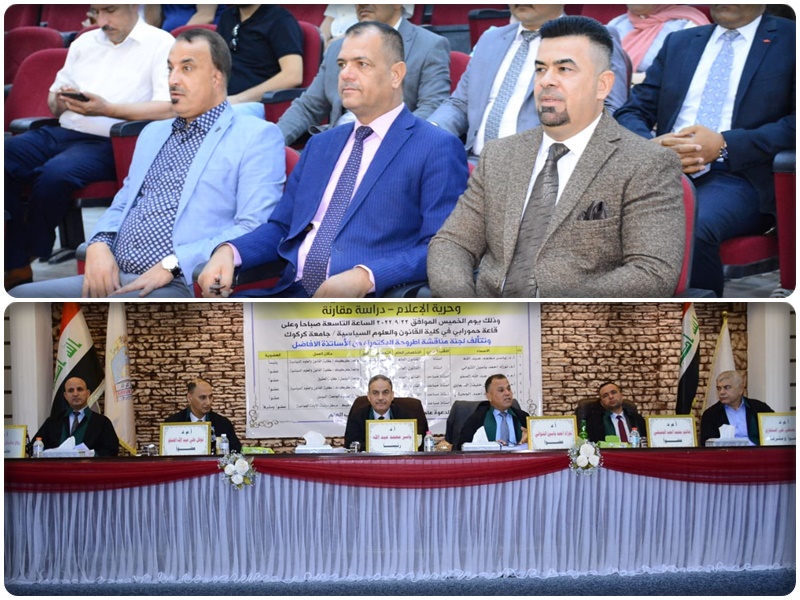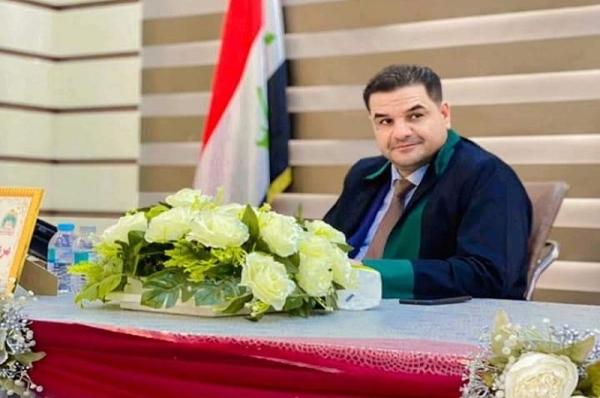In the presence of the President of the University, Prof. Imran Jamal Hassan, and the Scientific Assistant to the President of the University, Prof. Ahmed Abdel Ibrahim Al-Obeidi, a doctoral thesis at the College of Law and Political Science discussed the privacy of forensic evidence between the requirements of justice and freedom of the media / a comparative study, for the student: Marwan Hussein Ahmed Al-Dabbagh, and under the supervision of a. M. Dr.. Ahmed Mustafa Ali.
The thesis indicated that the judiciary has the right to demand that the media not influence during the coverage in directing public opinion against the application of the law or grant a specific case sympathy or condemnation that does not require conviction, and to conduct trials through the media and newspapers, as the harmful influence that falls outside the courtroom is through publication He made the trial just a legal means to record a ruling that the press had actually dictated, so that the media issued rulings before the issuance of the judicial ruling itself, causing public opinion to be in great confusion if the judicial ruling was issued contrary to the direction in which the media charged public opinion.
The thesis concluded, “The freedom of the media has been given a constitutional value in most of the constitutions of the countries, including the Constitution of the Republic of Iraq for the year 2005. As a mere informational piece of news in the media and between publication to induce the judiciary to impose a specific ruling, the first is a right that is stipulated and permitted by law - the trials are public unless the judiciary decides their confidentiality - and the second constitutes an influence on the judiciary and misleads the public opinion, punishable by law.The thesis recommended the Iraqi legislator to legislate a special text for the media and the press to organize their work to know the limits set for them in not violating the confidentiality of the investigation, from publishing the investigation’s course and specifying the provisions of freedom of the press and showing the rights that emanate from this freedom and the cases in which the media and the press violate those rights.

